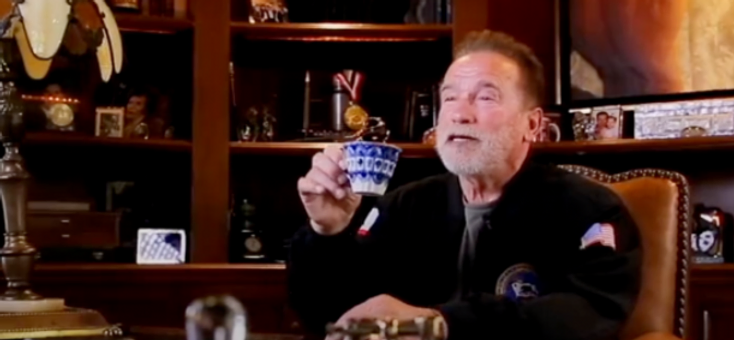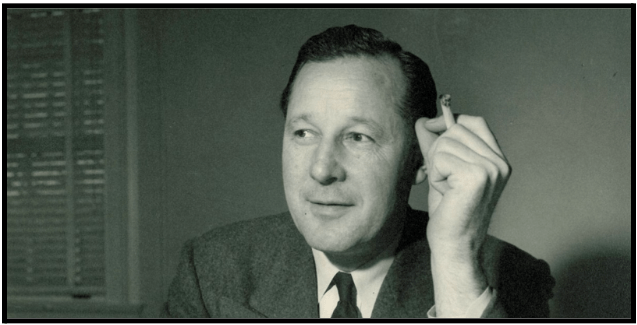Talking Big Ideas.
“You’re not the star of the show. The audience is.”
~ Nancy Duarte, HBR Guide to Persuasive Presentations
I got a call one day from a young Texas attorney named Arif.
He was writing an op-ed that he wanted me to pitch to the Austin-American Statesman. They’re the biggest and most influential paper in the Texas capital. It’s a huge deal to be published there. I was sorry to give Arif bad news.
We can’t send his piece to the Statesman, I told him. I’d been pitching op-eds for years, and never once had they considered a piece I’d sent.
“It’s fruitless,” I said.
Arif pushed back: “Let’s just try it, is that okay?”
I knew it would be a waste of time, but I relented. He sent me his op-ed. As I read it my skepticism slowly turned to excitement. Arif highlighted excellent regulations in Austin and contrasted them with bad regulations in neighboring cities.
His theme was clear: Austin is amazing! The rest of Texas should follow Austin’s lead.
I pitched Arif’s piece to the Statesman. They quickly wrote back. They loved it – and published it shortly afterward.
Nearly a century ago Dale Carnegie wrote his magnum opus: How to Win Friends and Influence People. He laid out 30 timeless principles on human relations. These are the first two:
- Don’t criticize, condemn, or complain.
- Give honest and sincere appreciation.
Arif taught me the power of applying these principles. All too often op-eds focus on criticizing, condemning, and complaining. No wonder papers don’t want to publish them!
I think about Carnegie’s insights sometimes when I work with clients. Occasionally I share the story of Arif. Because speakers, like writers, often want to criticize, condemn, and complain.
As speakers, we may try to set our audiences straight. We may focus on our interests rather than theirs. And see if we can force them to accept our positions and ideas while disregarding what they think and say.
This is a self-focused approach. It tends to be our default in communications.
A more effective method, the one Arif took with his op-ed, is the audience-focused approach.
Whenever we communicate, whether it’s writing or speaking, we benefit from focusing on our audience. The more we can walk around in their shoes, and see the world through their eyes, the more likely we are to connect with them.
As design expert Ken Haemer says:
Designing a presentation without an audience in mind is like writing a love letter and addressing it ‘to whom it may concern.’
When we speak, we should assume our audience wants to know how we can benefit them. They’re not there to benefit us. The more we understand our audience, and tailor our presentation to their benefit rather than ours, the more likely we are to have an impact.
Consider yesterday’s viral speech by Arnold Schwarzenegger.
At the time I’m writing this, it already has more than 25 million views on Twitter. And it’s posted across several mediums.
Arnold begins by clarifying who his audience is: “my dear Russian friends, and the Russian soldiers serving in Ukraine.”
He immediately focuses on their interests. He compliments them on qualities they take pride in – their strength, the heroes they produce, the sacrifices they have made going back to World War Two, where they defeated the Nazis to help save the world.
Arnold creates a simulation early on. He brings us to the moment he meets his childhood hero, the Russian bodybuilder Yuri Petrovich Vlasov: “I will never forget that day. Never. I went home and put his photo above my bed to inspire me when I started lifting weights.”
At no point does he criticize, condemn, or complain. Instead, he offers honest and sincere appreciation.
To honor his Russian hero, Arnold tells us how he stood up to his father – an actual Nazi who fought in Leningrad. By building his credibility as someone who knows what a Nazi is, Arnold calmly explains that Ukraine’s president is not one, despite what the Kremlin says.
Russians have told each other stories about defeating Nazis for 80 years. And now it is their government, Arnold says, that is behaving like Nazis. He makes clear the Russian people are distinct from their corrupt government.
Arnold explains how his father was fed lies by his government. Just as the Russian people are now being fed lies by their government.
His message is brought to life with compelling videos – of the bodybuilder Yuri Petrovich Vlasov, of Arnold’s time filming in Russia, and of Russian bombs hitting civilian targets in Ukraine.
Arnold weaves together logic seamlessly with stories and concrete vivid details. He uses an effective prop, the teacup given to him by his Russian hero. His lighting, framing, and background are all ideal.
He even uses anaphora – repetition at the beginning of sentences – to emphasize certain ideas:
To Russian soldiers listening . . .
Your lives.
Your limbs.
Your futures have been sacrificed for this senseless war condemned by the entire world.
And he uses epistrophe – repetition at the end of sentences – also to great effect:
And to President Putin, I say:
You started this war.
You are leading this war.
You can stop this war.
But most importantly, he applies an audience-focused approach. Yuri Petrovich Vlasov “was so thoughtful, so kind, and so smart, and of course, very giving.” And by extension, so are the rest of the Russian people: “The strength and the heart of the Russian people have always inspired me.”
Consider Arnold’s compassion in light of the moment we are in right now.
The Russian State Ballet of Siberia was canceled throughout the UK. Netflix canceled several upcoming new series with Russian ties, including their anticipated adaptation of Tolstoy’s Anna Karenina.
The 20-year-old Russian virtuoso pianist Alexander Malofeev, who condemns the war, has nonetheless been canceled by symphonies throughout Canada. Nikita Mazepin was fired, in writing, from his Formula 1 racing team solely for his Russian ethnicity.
The International Cat Federation has banned all Russian felines! And the iconic fine-dining restaurant Russia House in Washington D.C. – owned by Americans – has been vandalized so bad it may have to close.
Bari Weiss writes: “ask yourself where you might have stood after Pearl Harbor when told how important it was to put Americans of Japanese descent into giant holding pens.”
We know where Arnold would stand. At a time when innocent people are being ostracized, Arnold embraces them. In striking contrast to the mob mentality, he brings us a calm, independent voice of compassion and principle.
He offers a simple call to action that everyone can perform: “I ask you to help me spread the truth. Let your fellow Russians know, the human catastrophe that is happening in Ukraine.”
Even though Arnold played a hero in many movies, in this speech he is not the hero. His audience is. He ends by calling out the brave Russian protesters standing up to their government:
You are my new heroes. You have the strength of Yuri Petrovich Vlasov. You have the true heart of Russia.
Last year I wrote that Frederick Douglass showed us with clarity and compassion the correct path forward.
Yesterday Arnold Schwarzenegger did the same.
***
![]() IDEA
IDEA
Focus with clarity and compassion on your audience.
Listen to Arnold’s speech. Ask yourself, how can you be more audience-focused when you speak?
**
I would like to thank Michael Farren and Kim Hemsley for taking the time yesterday to discuss Arnold’s speech with me and offer their analysis and feedback.
If you find this useful, please subscribe to our free weekly newsletter.




